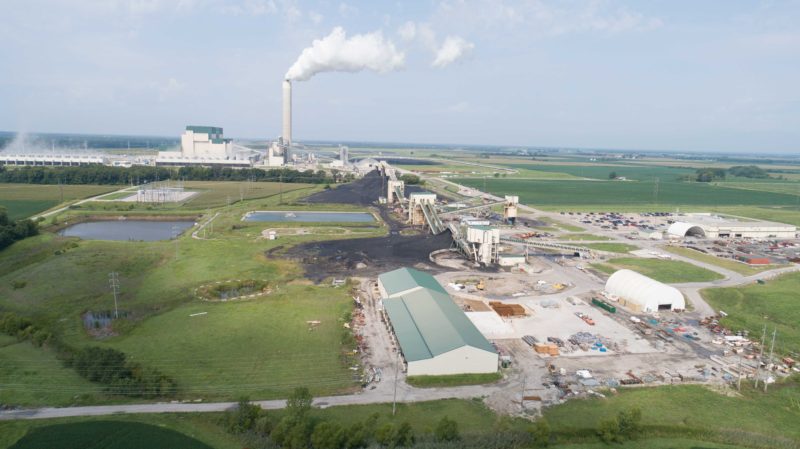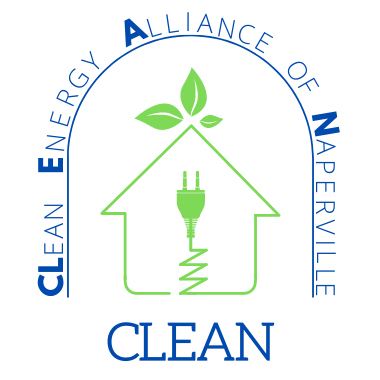Naperville grassroots group, CLEAN, publishes a new report about lack of transparency in their publicly-owned municipal electric utility
The Clean Energy Alliance for Naperville (CLEAN), a grassroots organization, recently published a “Lack of Transparency” report about Naperville’s publicly-owned municipal electric utility. The problems with transparency include, but are not limited to, lack of information, oversight, and accountability related to their power supply (i.e. where their power comes from), including their ownership of the Prairie State Coal Plant and co-located coal mine.

Naperville and the other 31 municipal members of the Illinois Municipal Electric Agency (IMEA) together own over 15% of the Prairie State Coal Plant, the largest greenhouse gas emitter in Illinois and the seventh largest in the United States. The Prairie State Coal Plant produces roughly 2.3 million cubic yards of coal ash a year that pollutes nearby groundwater. The coal plant has also operated for more than a decade without an approved air permit as required by the Clean Air Act.
You can click here to learn more about the Prairie State Coal Plant and you can click here to see if your municipal electric utility or rural electric cooperative is part owner of the Prairie State Coal Plant.
The Spirit and Intent of Public Power
Unlike investor-owned utilities (e.g. ComEd), municipal electric utilities are not subject to regulatory oversight by the state of Illinois. According to the American Public Power Association, these utilities should, instead, be focused on “serving the local community” through local control and local decision making. They should be governed and regulated by an elected city council or similar elected board. In theory, publicly-owned municipal utilities should be poised to save money and benefit the most from local ownership and generation of clean, renewable energy, but this is not the case in Illinois. Thirty-two Illinois municipal electric utilities, including Naperville, are members of the Illinois Municipal Electric Agency (IMEA). Through a long-term contract with IMEA these municipal utilities rely on IMEA for their power supply needs. Read on to learn how membership with IMEA and the lack of transparency has limited local control and decision making for Illinois’ municipal electric utilities.

Lack of Transparency
The 18-page CLEAN report shares specific examples that highlight how the “lack of transparency…by Naperville and IMEA runs contrary to the spirit and intent of ‘public power’, as well as open and accountable government”. According to the report, IMEA and Naperville are both units of local government yet they utilize exceptions and exemptions of the Open Meetings Act and FOIA that prevent public oversight and accountability by the people of Naperville and the other member communities. Furthermore, the report highlights how the Naperville City Council does not have specific policies and procedures in place to guide their representative on the IMEA Board of Directors (i.e. the director of the Naperville Electric Utility sits on the IMEA Board under the supervision of the City Manager). In effect, there is no apparent requirement for the City of Naperville administration to keep the City Council and people of Naperville informed about pertinent information and decisions related to IMEA and the coal-fired power supply of the city.
IMEA functions as a curtain, shielding the elected city council members and the people of Naperville from information, plans, and decision-making about Naperville’s coal-fired power supply. Information about the operational and maintenance costs and environmental liabilities of the Prairie State Coal Plant are not made available to Naperville and other communities. Without this information, municipal electric utilities cannot make informed decisions about the future of their power supply contract with IMEA.
As other communities plan for and implement clean energy, the owners of the Prairie State Coal Plant are doubling down on their investment in coal, without real engagement or direction from the people they serve. According to CLEAN, IMEA helped foot the bill for a $3.5 million dollar study on carbon capture and storage (CCS) at the Prairie State Coal Plant, a technology and investment that is problematic for coal-fired power plants. Furthermore, plans to pursue the CCS project are underway, all without open communication to the Naperville city council and people of Naperville. The CLEAN report also points out that through membership in trade and industry groups, ratepayer dollars are likely being used in “lobbying efforts on different priorities that arguably may be delaying the transition and retirement of coal-fired generation.”
Why We Must Act Now
CLEAN’s report highlights a big reason why the topic of transparency and coal fired power supply should be top of mind and urgent for the public in Naperville. According to the CLEAN report, Naperville’s contract with IMEA ends in 2040 with the option to end the contract in 2035 at the earliest with five years notice. Despite that distant timeline and lack of transparency around renewal conversations, recent IMEA board meeting presentations indicate that IMEA is planning to approve the form of the new contract documents in February 2024. After that, it is likely the new contract proposals would then go to the 32 IMEA member city councils for approval. In fact, IMEA now has a professionally-staffed marketing campaign aimed at convincing Naperville and other members to extend their contracts for IMEA membership.
What Can We Do?
Now is the time for municipal electric utility communities, like Naperville, to “put the public back in public power” and envision and plan for a clean energy and pollution-free future. With help from the public they serve, city councils must put policies and procedures in place to reach that future and to create transparency, particularly with IMEA. Furthermore, legislative changes are needed to increase the transparency of all municipal electric utilities in Illinois. Without legislative changes at a state level and local policy changes at the city council level, IMEA membership renewal means the status quo for Naperville’s coal-powered future and the Prairie State Coal Plant.
The people of Naperville and other IMEA communities should be talking to their City Council members and state legislators about the future of their power supply. You can learn more about taking action and getting involved on CLEAN’s website.







